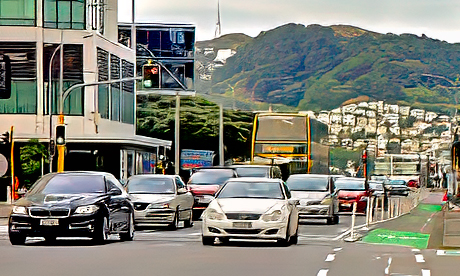Kiwis do not understand how best to fight climate change.
A recent Ipsos poll reveals a significant disconnect between New Zealanders’ perceptions and the actual impact of individual actions on greenhouse gas emissions.
As reported by Newsroom, the survey was conducted among 1002 participants in New Zealand, compared with responses from 21,231 individuals across 29 other countries, highlighting a global trend of scepticism towards government climate plans.
Only 31 percent of New Zealanders believe the government has a clear strategy to tackle climate change, down from 46 percent last year.
Similarly, just 30 percent consider New Zealand a global leader in the fight against climate change.
While two-thirds of Kiwis acknowledge the urgency to combat the climate crisis, this figure has dropped by 6 percentage points since 2022.
Carin Hercock, Managing Director of Ipsos New Zealand, is concerned about the lack of increased awareness among New Zealanders despite experiencing severe weather events.
This also aligns with a global reduction in climate change urgency observed in other countries monitored by Ipsos.
In addition, the survey examined the reasons behind the lack of concern about climate change.
Economic conditions were cited as a factor, with 31 percent of respondents believing they were unfavourable for investing in climate measures.
In terms of motivating factors for action, half the respondents identified visible impacts of climate-driven extreme weather, financial incentives and improved access to information.
A higher proportion of Kiwis prioritised these factors compared to respondents from other countries.
However, the survey exposed a limited understanding among New Zealanders of effective individual actions and the main sources of greenhouse gas emissions.
- Recycling, for example, was incorrectly perceived as the most impactful action despite its negligible climate impact
- Switching to renewable energy ranked second but was fourth in terms of effectiveness. Choices such as growing one’s own food, reducing packaging and consuming less ranked lower
- Living car-free, the top choice, was selected by only 12 percent of New Zealanders compared to 18 percent globally
“New Zealanders are still overestimating the impact actions like recycling, growing your own food, using less packaging and buying fewer items will have in contributing to the reduction in greenhouse emissions and underestimating the actions that might be harder to do, but will have a far greater impact such as living car-free, using public transport or improving housing for energy efficiency,” Ipsos New Zealand’s research director for public affairs Amanda Dudding said.
“Our understanding of many of these high-impact actions are much lower than the global average, so clearly more education is required,” she said.
In 2021 Swedish Environmental activist Greta Thunberg singled out New Zealand for its lack of action on climate change, accusing the leadership of being all talk.
